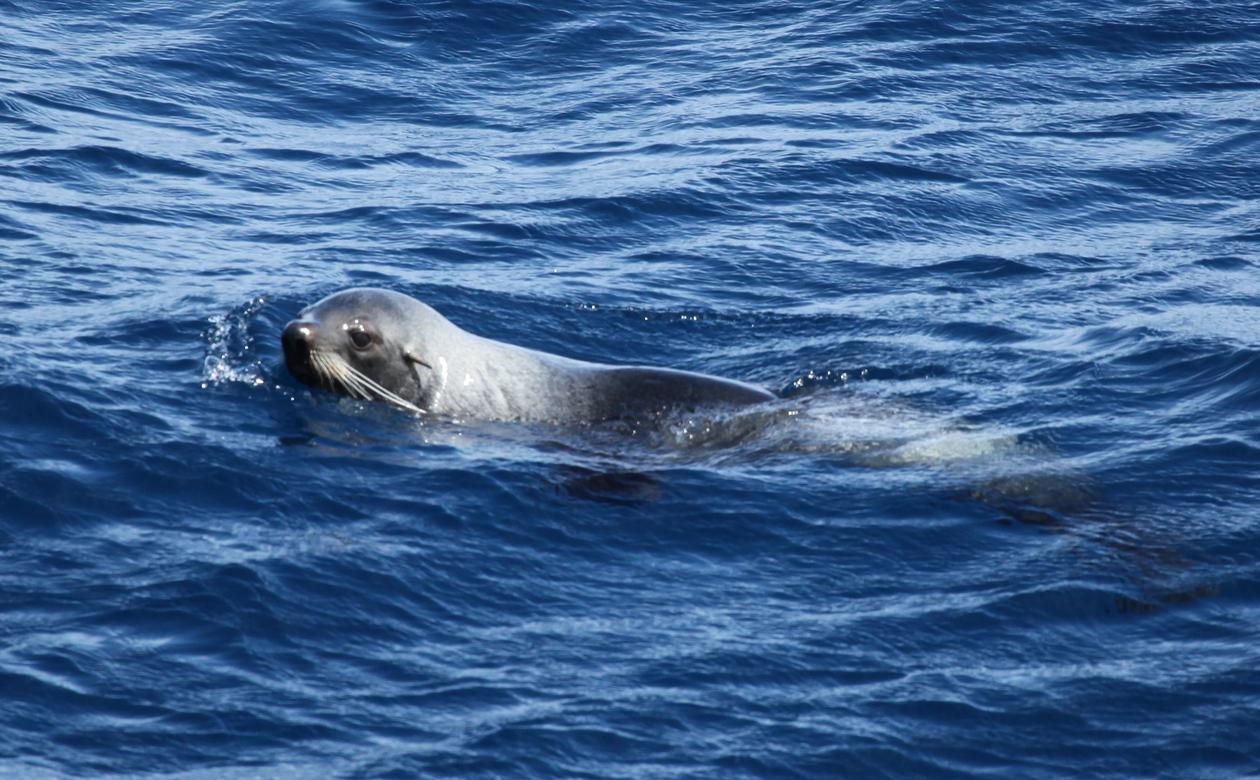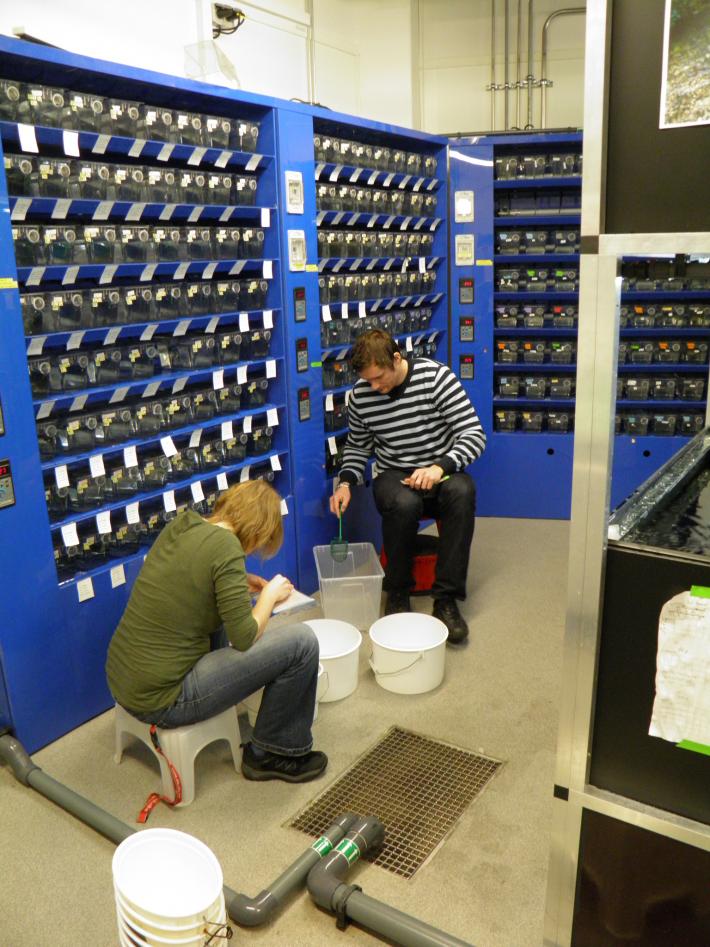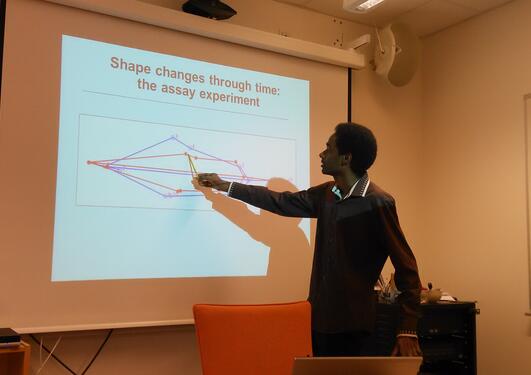Cost of life-history adaptations in guppies
"Cost of life-history adaptations: Multiple-trait consequences of fisheries-induced evolution" is a new project funded the Norwegian Research Council to understand the intricate trade-offs that organisms face when adapting to new stressors

Main content
There is no such thing as a free lunch. Organisms are constantly adapting, but most of the time this means that improvements in some aspects of performance have to be paid by reduced performance in some other way(s). Sometimes this is obvious—a limited amount of energy can be used to produce many small or few large offspring, but not many large, or a bird can be good in long-distance flight or manouvarability, but not a master in both.
This project is set to 1) address one of the fundamental questions in evolutionary biology, the cost of adaptations to external stressors, 2) cross disciplinary boundaries between evolutionary biology, behavioural ecology, and physiology, and 3) break new ground in studying exploitation-induced evolution. The project is building on a selection experiment that we have been running since 2009. The best way of studying costs of adaptations is to push populations away from their naturally-selected "optima", thus revealing how costs are being paid. Harvest-induced evolution is one way of achieving this push.
The project is organized around seven work packages:
- Individual assessment of physiology (e.g., metabolic rate)
- Individual assessment of behaviour (e.g., willingness to forage)
- Molecular assessment of behaviour (e.g., neurogenic differentiation factor)
- Individual assessment of parasite resistance (consequences of Gyrodactylus exposure)
- Molecular assessment of parasite resistance (MHC genotyping)
- Synthesis (e.g., sensitivity of fitness to trait variation)
- Dissemination of results (e.g., this website; @EvoFish_UiB)
In addition to a good in-house team and collaborations, we have great external collaborations:
- Lars Ebbesson, Uni Research (Norway)
- Andrew Hendry, McGill University (Canada)
- Galice Hoarau, Nord University (Norway)
- Shaun Killen, University of Glasgow (Scotland)
- David Reznick, University of California at Riverside (USA)
- Andrew Sih, University of California at Davis (USA)
Once recruitment is completed the core of local team will consist of the PI (Mikko Heino), a PhD student, and a postdoc.


